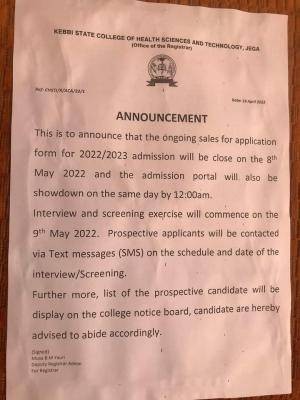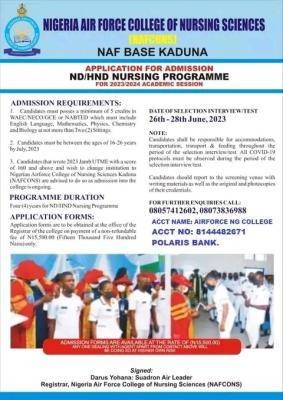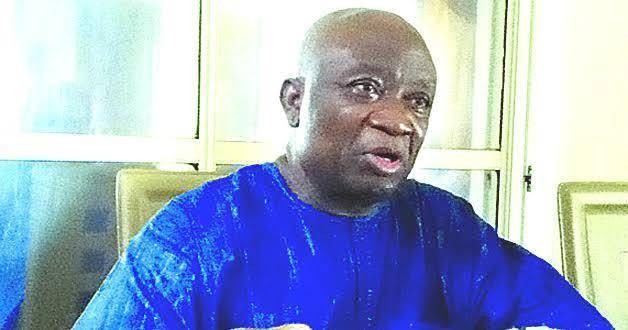
Colleges of Education Academic Staff Union (COEASU) just concluded a seven day warning strike, and will go on a full-fledged strike action if the Federal Government does not meet its demands.
The Vice President of the Union, Mr. Smart Olugbeko, in an exclusive interview with Vanguard Learning said the warning strike “was meant to call attention to the total neglect of the teaching education sector. We gave government a 21 day ultimatum which elapsed; we also gave them a 14 day ultimatum as well as a 7 day ultimatum.”
The strike must have got the attention of the government because government officials immediately set up a meeting with the union to hold today, September 19. The COEASU VP however, gave an insight into the union’s grievances.
2010 agreement
It appears that the Federal Government’s 2009 agreement with ASUU is not the only agreement with an education union that it has refused to honour. Olugbeko argued that government had refused to implement an agreement signed with the union in 2010 which was due for a renegotiation in 2012.
Some of the features of the agreement include addressing the infrastructural deficits in Colleges of Education (CoE) as well as the peculiar academic allowances to the tune of N5bn which the government has refused to pay the lecturers.
“Theatres and the laboratories are in a state of disarray, and government has not been able to make adequate provision to revitalize these institutions. There is a capital shortfall of about N10bn between 2009 and 2013,” Olugbeko said.
Law lecture theater, University of Ibadan
Law lecture theater, University of Ibadan during the strike…
COAESU’S fresh demands
Apart from the agreement, the Union also has fresh concerns: “One of our grievances is that government has not released funds for the accreditation of courses in CoE since 2009 and the importance of accreditation in any tertiary institution can’t be overemphasized.
Government also owes some of our members’ monetization arrears to the tune of N1bn since 2010. Despite correspondence with the government offices involved, this issue is yet to be resolved. There is also the issue of under-funding as it relates to teaching practice. Teaching practice is to CoEs what a teaching hospital is to a college of medicine. As a result of under-funding, teaching practice is not producing the desired result and is bound to have an adverse effect on the education sector as a whole.”
COEASU also wants government to carry out a National Economic Empowerment Development Strategy, (NEEDS) assessment of CoE to accurately access the dilapidation and infrastructural deficit across the campuses.
Though government sent a visitation panel to the CoE in 2012, but is yet to release a white paper to that effect. Olugbeko said: “I can authoritatively tell you that we were told by the recently sacked Minister for Education that the panel had submitted its recommendations and the document had been delivered to the Secretary to the Government. But up till this moment, the white paper containing those findings has not been released and we are very much concerned because there were very serious issues raised during those visits that we as a union hoped to bring to light for the betterment of the sector.”
Another issue that CoE have hammered on for years is the harmonization of the conditions of service in tertiary institutions. The Union believes that this will, to a large extent, help stop the brain drain from the CoE.
“CoEs are the lowest in the tripod of tertiary institutions. Lecturers from our colleges run to the varsities because of the poor conditions of service here. The management of these colleges find it difficult to sponsor lecturers to further their education because as soon as they get their PhDs, they want to go the varsities.
But you can’t really blame them because, irrespective of the number of papers you have written, you can’t become a professor as long as you’re employed in a CoE.
That is why we are saying that CoE should become degree awarding institutions, so that we can raise our own PhDs and professors.
“At Adeyemi College of Education, where I work, we have been running degree programmes for about 31 years which is done under the tutelage of Obafemi Awolowo University. All OAU does is put their name on the certificate while all the lectures are from the CoE. That is why we would like the government to create a dual mode system where we can have the autonomous status to award degrees as well as run the NCE programmes. The National Universities Commission can accredit the degree courses, while the National Commission for Colleges of Education can accredit the NCE courses.”
Olugbeko also rejected FG’s proposed Information Payroll Personal System (IPPIS) where government plans to pay all its workers from a central point in Abuja. He argued that the system will be wrought with irregularities, cripple the recruit efforts of tertiary institution and put lecturers’ sabbatical at a disadvantage.




